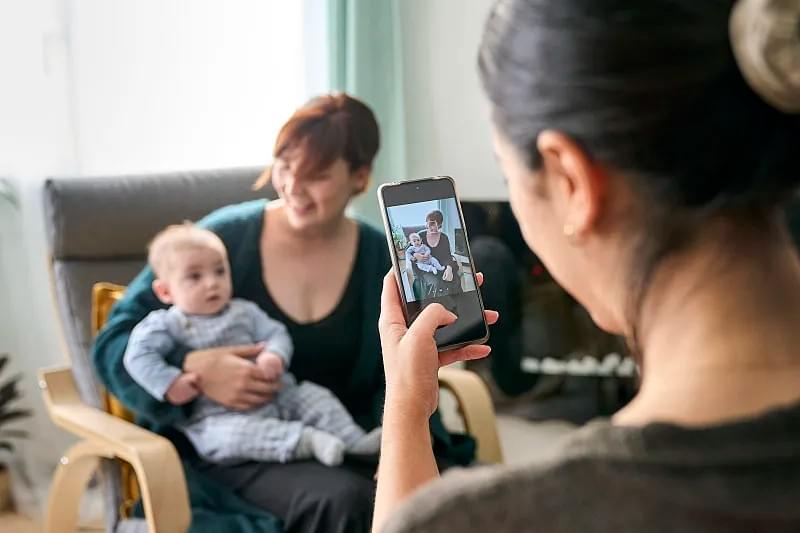Surrogacy is a profound journey that intertwines medical science, legal frameworks, and deeply personal emotions. While much attention is given to the physical and logistical aspects—such as fertility treatments, legal contracts, and prenatal care—the emotional component remains one of the most critical yet often under-discussed elements. For intended parents, surrogates, and even their families, the emotional landscape of surrogacy can be complex, layered, and transformative.
This article explores the emotional dimensions of surrogacy from multiple perspectives, emphasizing why comprehensive emotional support is not just beneficial but essential for a healthy and successful surrogacy experience. Whether you're considering becoming a surrogate, pursuing parenthood through surrogacy, or supporting someone who is, understanding these emotional dynamics can make all the difference.
Understanding the Emotional Spectrum in Surrogacy
At its core, surrogacy is an act of profound generosity and hope. It enables individuals and couples who cannot carry a child themselves to build a family. Yet behind every successful birth story lies a web of emotional highs and lows.
For intended parents, the path to surrogacy often follows years of infertility struggles, failed IVF cycles, miscarriages, or medical conditions that prevent pregnancy. These experiences can leave deep emotional scars—grief, guilt, anxiety, and a sense of loss. Entering surrogacy brings renewed hope, but also fear: Will the embryo transfer succeed? Will the surrogate remain committed? Will they bond with the baby?
For gestational surrogates, the decision to carry a child for others is typically driven by empathy and altruism. However, carrying a pregnancy for someone else does not eliminate the hormonal, psychological, and social changes that come with pregnancy. Surrogates may face questions about attachment, identity, and societal judgment. They may worry about how their own children perceive their role, or whether they’ll feel sadness after handing the baby to the intended parents.
Even partners, family members, and friends experience emotional shifts. They may feel proud, confused, or overwhelmed. Without proper guidance, misunderstandings or unmet expectations can strain relationships.

The Hidden Challenges: What Isn’t Always Talked About
While many resources highlight the success rates and procedural steps of surrogacy, fewer address the emotional hurdles that arise unexpectedly.
1. Grief Amidst Joy
Intended parents may feel guilty for experiencing grief during what’s supposed to be a joyful time. They might mourn the fact that they couldn’t carry their own child, even as they celebrate the miracle of impending parenthood. This duality is normal but rarely discussed openly.
Surrogates, too, may experience postpartum emotions that surprise them. Despite knowing intellectually that the baby isn’t theirs, hormonal shifts and the intensity of childbirth can trigger feelings of loss or emptiness—a phenomenon sometimes called “post-surrogacy blues.”
2. Communication Gaps
Miscommunication—or lack of communication—can create emotional distance. Intended parents might hesitate to reach out, fearing they’re being intrusive. Surrogates may feel pressured to appear always happy and strong, suppressing their true feelings. Over time, this imbalance can erode trust.
3. Identity and Role Confusion
Children born via surrogacy will eventually ask, “How was I born?” How intended parents explain surrogacy—and how surrogates are included (or not) in the narrative—impacts long-term emotional health. Some families maintain ongoing contact with the surrogate; others opt for limited interaction. Both choices are valid, but each carries emotional considerations.
4. Social Stigma and Isolation
Despite growing awareness, surrogacy still faces stigma in many cultures. Surrogates may hide their journey from coworkers or extended family due to fear of judgment. Intended parents might avoid discussing their path to parenthood, feeling it makes them seem “less natural” as parents. This secrecy can lead to isolation.
Why Emotional Support Systems Are Non-Negotiable
Given these complexities, professional and peer-based emotional support isn't a luxury—it's a necessity. Research shows that participants in well-supported surrogacy programs report higher satisfaction, stronger relationships, and better post-birth adjustment.
Here’s how structured emotional support benefits each group:
For Intended Parents: Rebuilding Trust and Reducing Anxiety
After years of reproductive challenges, many intended parents struggle with control and uncertainty. A therapist specializing in third-party reproduction can help them:
- Process past trauma related to infertility
- Manage anxiety during pregnancy milestones
- Develop healthy boundaries with the surrogate
- Prepare emotionally for parenting
Support groups also allow intended parents to connect with others who truly understand their journey, reducing feelings of isolation.
For Gestational Surrogates: Validating the Invisible Labor
Carrying a child for others is emotionally demanding work. Surrogates benefit from:
- Regular counseling sessions throughout the process
- Peer networks where they can share honest feelings without judgment
- Education on postpartum emotional health
Knowing their emotional well-being is prioritized reinforces their sense of value and agency.
For Families: Strengthening Relationships
Involving partners in counseling sessions helps align expectations and deepen empathy. Family therapy can also prepare children of surrogates to understand their parent’s role, fostering pride rather than confusion.

Building a Comprehensive Support Framework
So, what does effective emotional support in surrogacy look like in practice? It should be proactive, personalized, and accessible at every stage.
1. Pre-Screening and Psychological Evaluation
Reputable surrogacy agencies require psychological assessments before matching. These evaluations ensure that both intended parents and surrogates:
- Understand the emotional implications
- Have realistic expectations
- Possess healthy coping mechanisms
- Are free from untreated mental health conditions
These screenings aren’t about disqualifying candidates—they’re about ensuring readiness and providing early intervention if needed.
2. Ongoing Counseling Throughout the Journey
Emotional needs evolve:
- Pre-conception: Address fears, set intentions, establish communication norms
- Pregnancy: Monitor stress levels, facilitate check-ins, navigate complications
- Birth and Postpartum: Support bonding, manage transitions, process closure
Monthly or bi-monthly sessions with a licensed therapist provide continuity and safety.
3. Peer Mentorship Programs
Connecting first-time participants with experienced surrogates or intended parents offers invaluable real-world insight. Mentors can:
Share how they handled difficult moments
Offer practical tips for communication
Normalize emotional fluctuations
This peer-to-peer model builds community and reduces anxiety.
4. Digital Support Platforms
Many agencies now offer private online forums or apps where participants can:
- Ask questions anonymously
- Share updates and photos (if desired)
- Access educational content on emotional wellness
These platforms ensure support is available 24/7, especially during late-night worries or urgent concerns.
5. Post-Journey Debriefing
After the baby is born and the initial excitement fades, a final debriefing session helps everyone reflect:
- What went well?
- What could have been improved?
- How do they feel about the relationship moving forward?
This closure promotes healing and growth.

Cultural Sensitivity in Emotional Support
Emotional needs vary across cultures, religions, and personal beliefs. Effective support must be culturally competent.
For example:
- In some cultures, surrogacy is taboo, making anonymity crucial.
- Religious beliefs may influence views on embryo creation or disposal.
- LGBTQ+ intended parents may face additional layers of societal pressure.
Therapists and agencies must approach these differences with humility, offering tailored guidance without imposing values.
Additionally, language barriers should be addressed. Bilingual counselors or translation services ensure that non-native English speakers receive equitable emotional care.
The Long-Term Impact of Emotional Wellness
Investing in emotional support doesn’t just improve the surrogacy experience—it shapes long-term outcomes.
Families who receive consistent emotional guidance tend to:
- Communicate more openly
- Handle future challenges with resilience
- Foster healthier attachments with their children
- Maintain positive relationships with their surrogate (if desired)
Surrogates who feel emotionally supported are more likely to:
- View their experience positively
- Consider helping again (if eligible)
- Advocate for ethical surrogacy practices
Moreover, when emotional health is prioritized, the entire surrogacy ecosystem becomes more sustainable and humane.
How Agencies and Professionals Can Lead the Way
If you’re part of a surrogacy agency, clinic, or support organization, here’s how you can elevate emotional care:
- Integrate Mental Health into Standard Protocols
Make counseling mandatory, not optional. Cover costs as part of the service package.
- Train Staff in Emotional Intelligence
Case managers, coordinators, and nurses should be equipped to recognize signs of distress and respond empathetically.
- Create Inclusive Content
Publish blogs, videos, and guides that normalize emotional conversations—like this one.
- Partner with Licensed Therapists
Build a network of professionals experienced in reproductive psychology.
- Collect Feedback and Improve
Regularly survey participants about their emotional experience and adjust services accordingly.

Conclusion: Emotion Is the Heart of Surrogacy
Surrogacy is often described in clinical terms: embryo transfers, gestational carriers, legal agreements. But at its heart, it’s an emotional journey—one defined by love, sacrifice, hope, and transformation.
Ignoring the emotional dimension risks turning a miraculous process into a transactional experience. By contrast, embracing it with compassion, education, and structured support creates a foundation for lasting well-being.
Whether you’re beginning your surrogacy journey or supporting someone who is, remember this: seeking emotional help isn’t a sign of weakness. It’s a courageous step toward a healthier, more meaningful experience—for everyone involved.
As society continues to evolve in its understanding of family-building, let us ensure that emotional intelligence remains at the forefront of ethical surrogacy practice. After all, the strongest families aren’t built just from genetics or legal papers—they’re built from empathy, connection, and care.
